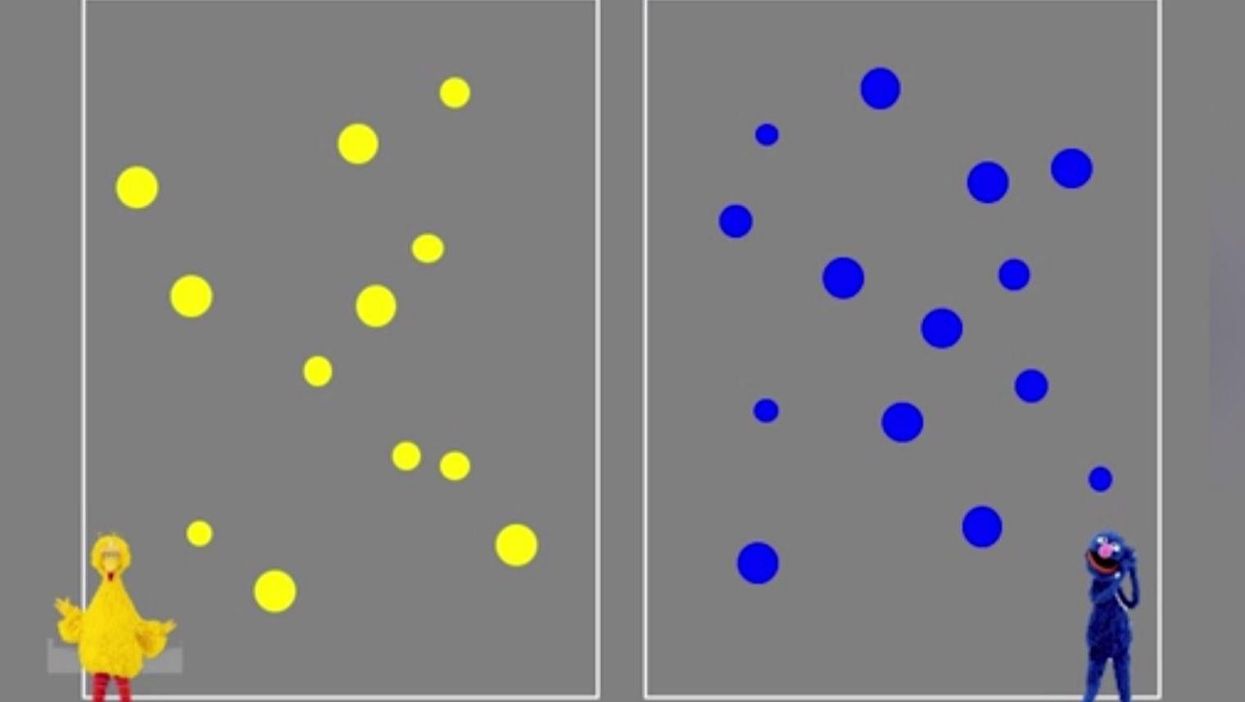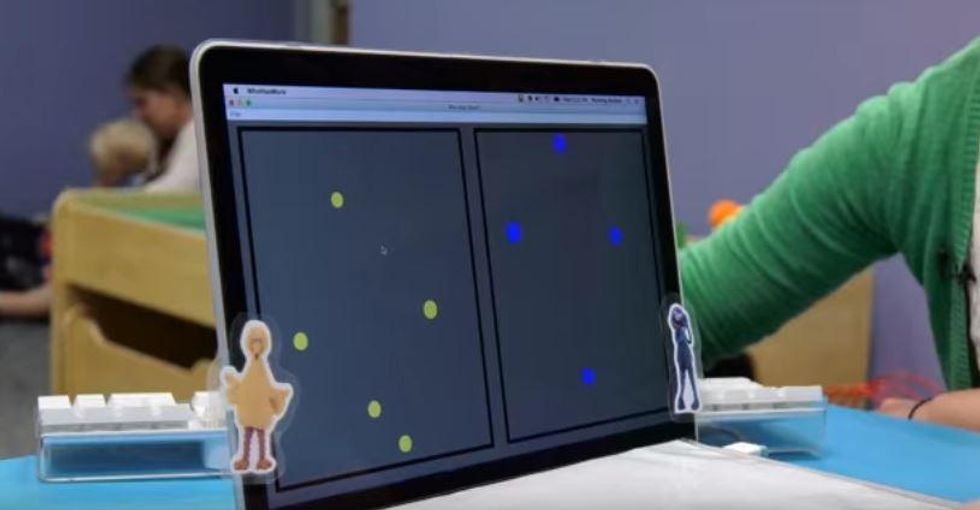News
Joe Vesey-Byrne
Jun 17, 2016

Jinjing (Jenny) Wang of Johns Hopkins University has carried out a study to see if a simple dot test would improve the mathematical ability of children.
The test relies on developing children's "approximate number system" (ANS), which is the ability to work out a numerical quantity.
It's a non-verbal skill that exists in animals as well as infants, though most animals outside of zoos and circuses don't receive further mathematical training in the way that humans do. When presented with two plates of crackers, a baby will gravitate towards the one with more crackers, before they've been taught how to count. Maybe that's why it's called "gut instinct".
A previous study by Johns Hopkins also found a correlation between preschooler's acuity of ANS and their general ability to do mathematics.
The video was part of Wang's attempt to prove a casual link between the correlation that had been found in the 2011 study.
In this new study, approximately 40 children, all aged five, were shown a five minute video. The video showed them two collections of dots, coloured yellow and blue respectively. The dots flashed on screen and disappeared, too quickly to be counted, and the children were then asked if there had been more blue dots or more yellow dots.
The difficulty of the test varied, some children had to answer easy questions, some more difficult ones and others a were shown a mix.
Following this exercise, the children completed a maths quiz or a vocabulary quiz. While the results of the vocabulary quiz showed little variation, the children who had completed some easy questions and then advanced to more difficult questions significantly improved their mathematical skills. The maths quiz tested skills such as counting backwards, solving spoken aloud problems, and writing down numbers.
The full results are due to be published in the July issue of the Journal of Experimental Child Psychology, but the paper is is also available online. The study is credited to Darko Odic, Justin Halberda, and Lisa Feigenson, as well as Wang.
Wang claimed the results show that mathematical ability is not fixed.
Math ability is not static--it's not the case that if you're bad at math, you're bad at it the rest of your life. It's not only changeable, it can be changeable in a very short period of time.
It is more akin to a muscle that when exercised can achieve more than when relaxed. Feigenson addressed the longevity of the increased ability:
Of course, this raises the question of whether this kind of rapid improvement lasts for any significant duration, and whether it enhances all types of math abilities. We're excited to follow up on these questions.
A quick dot test or similar exercise can therefore work wonders on a child's ability. At indy100 we attribute this success to the true Gods of education, the characters of Sesame Street, who make a guest appearance in the video:
Credit to Eurekalert for drawing this simple test to our attention.
More: The flower puzzle that even a maths teacher says he can't solve
Top 100
The Conversation (0)














